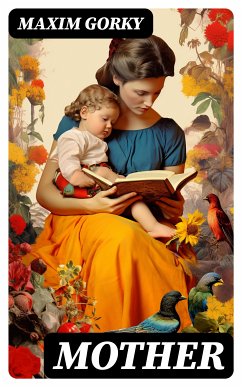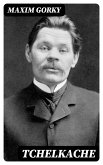In "Mother," Maxim Gorky crafts a poignant narrative that delves into the struggles of the working class in early 20th-century Russia. The novel centers on Pelageya Nilovna, a simple mother whose ardent support of her revolutionary son catalyzes her awakening to social consciousness. Gorky employs a realist style interwoven with lyrical language, effectively portraying the harsh realities of poverty and oppression while also illuminating the transformative power of collective action. Set against the backdrop of revolutionary fervor, the novel is situated within the literary movement that sought to inspire social change through provocative storytelling. Gorky's own tumultuous upbringing in an impoverished family, coupled with his experiences in a politically charged Russia, informs the emotional depth and authenticity in "Mother." As a prominent figure in the Russian literary canon and a champion of the proletarian cause, Gorky's work embodies the ideological struggle of his time, blending personal narrative with broader sociopolitical themes. His intimate understanding of the plight of the oppressed is reflected in the characters he so vividly brings to life. This seminal work is highly recommended for readers interested in social realism, revolutionary literature, and the human capacity for resilience. Gorky's exploration of motherly love and revolutionary zeal creates a compelling narrative that resonates powerfully with contemporary audiences, underscoring the timeless nature of the struggle for justice.
Dieser Download kann aus rechtlichen Gründen nur mit Rechnungsadresse in A, B, BG, CY, CZ, D, DK, EW, E, FIN, F, GR, H, IRL, I, LT, L, LR, M, NL, PL, P, R, S, SLO, SK ausgeliefert werden.









